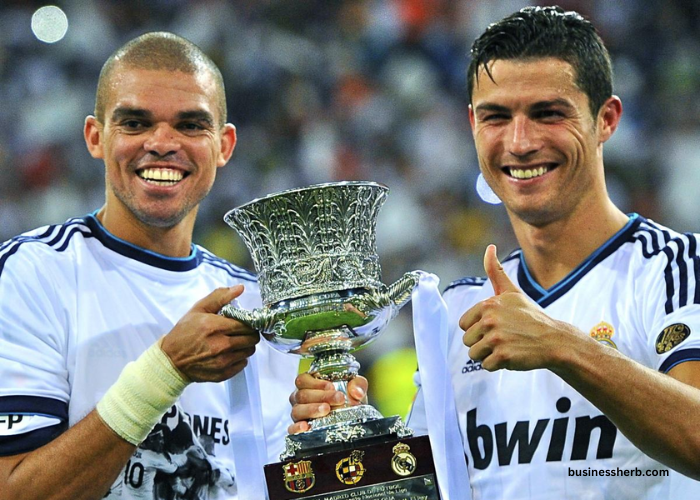Real Madrid Club de Fútbol, often referred to as Real Madrid, is a name that resonates with football fans worldwide. Established in 1902, this iconic football club has a rich history and an unrivaled legacy of excellence. From its humble beginnings in the heart of Madrid to becoming one of the most prestigious and successful clubs in the world, Real Madrid’s journey is nothing short of remarkable.
In this article, we will delve deep into the history, accomplishments, and the enduring influence of Real Madrid Club de Fútbol, showcasing the club’s pivotal moments, legendary players, and the unparalleled passion it ignites in fans across the globe.
A Tale of Beginnings
Real Madrid was founded on March 6, 1902, under the name Madrid Football Club. The club’s first headquarters were in the back room of the Al Capricho Café in Madrid. Its inaugural president, Juan Padrós, set the foundation for what would eventually become a footballing giant.
In 1920, King Alfonso XIII granted the club the royal title, Real, symbolizing the deep rooted connection between the monarchy and the club. From that moment, the club became known as Real Madrid Club de Fútbol.
The Santiago Bernabéu Era
One name that is synonymous with Real Madrid’s rise to prominence is Santiago Bernabéu. Elected as the club president in 1943, he initiated an ambitious project to revamp the club, which included the construction of the iconic Santiago Bernabéu Stadium. This stadium would later become a symbol of Real Madrid’s grandeur.
Bernabéu’s tenure witnessed the signing of legendary players such as Ferenc Puskás and Alfredo Di Stéfano, laying the foundation for a dominant era of success in the 1950s. The club won numerous domestic and international titles during this period, solidifying their status as a football powerhouse.
The Galácticos Era
The early 21st century marked the arrival of the Galácticos. Under the presidency of Florentino Pérez, Real Madrid made headlines by signing some of the world’s most renowned players, including Zinedine Zidane, Luís Figo, Ronaldo, and David Beckham. The Galácticos era showcased an exciting blend of footballing talent and star power, although it didn’t always translate to immediate success.
However, this period did bring La Liga titles and memorable moments, including the iconic UEFA Champions League triumph in 2002, which included a stunning volley by Zidane in the final.
The Ronaldo Phenomenon
In 2009, Real Madrid secured the signing of the Brazilian legend Ronaldo, often referred to as The Phenomenon. Ronaldo’s time at the club was relatively short, but his impact was profound. His extraordinary skill, speed, and goal-scoring ability left an indelible mark, and he is still fondly remembered by fans.
The Modern Era
The post-Galácticos era saw a renewed focus on the club’s youth academy, La Fábrica, and the development of homegrown talents. Players like Sergio Ramos, Iker Casillas, and Marcelo emerged as club icons and formed the core of Real Madrid’s success in the following years.
During this time, Real Madrid enjoyed a resurgence in European competition, securing multiple UEFA Champions League titles under the management of Zinedine Zidane. These successes were marked by the incredible goal scoring prowess of Cristiano Ronaldo and the outstanding midfield play of Luka Modrić and Toni Kroos.
The Legend of Cristiano Ronaldo
Cristiano Ronaldo, often considered one of the greatest footballers of all time, enjoyed a prolific spell at Real Madrid. From 2009 to 2018, Ronaldo shattered numerous records, scoring goals at an astonishing rate. His influence on the club was immeasurable, as he helped Real Madrid clinch four UEFA Champions League titles during his tenure.
The Legacy Continues
Today, Real Madrid remains a force to be reckoned with in the footballing world. Under the guidance of manager Carlo Ancelotti and the continued excellence of players like Karim Benzema and Vinícius Júnior, the club’s winning tradition endures.
Real Madrid’s historic rivalry with FC Barcelona, known as El Clásico, continues to captivate fans, and the fierce competition between these two giants of Spanish football is a spectacle like no other.
Conclusion
Real Madrid Club de Fútbol’s legacy is a testament to the enduring spirit of excellence, determination, and passion that defines the world of football. From its inception in 1902 to its current status as a global footballing institution, the club has produced countless moments of magic, heroics, and glory.

